Publications
The Millennium Development Goals report presents a yearly assessment of global progress towards achieving the MDGs. It is prepared by the Statistics Division at DESA on the basis of input provided by the members of the Inter-agency and Expert Group on MDG Indicators. Less than six years away from the 2015 deadline to achieve the MDGs, this report warns that despite many successes, overall progress has been...
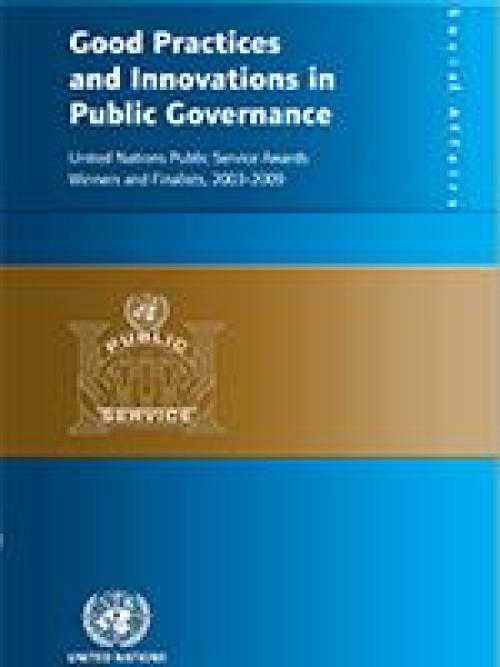
This publication provides an overview of 85 successful innovations in governance and public administration from 40 countries that received the United Nations Public Service Awards, which is the most prestigious international recognition of excellence in public service. The purpose of this book is to disseminate, through descriptive case studies, information about innovative practices by looking at the problem that led to an innovation; the solution that was designed and implemented to respond to the specific challenge; the actors and steps involved in the innovation process, and lessons learned. Learning more about how public institutions from around the world have solved difficult…
This report presents an assessment of progress, based on data available as of June 2008 on all official Millennium Development Goals (MDG) indicators, including the new ones introduced. The aggregate figures in the report provide an overall assessment of regional progress under the eight goals and are a convenient way to track advances over time.
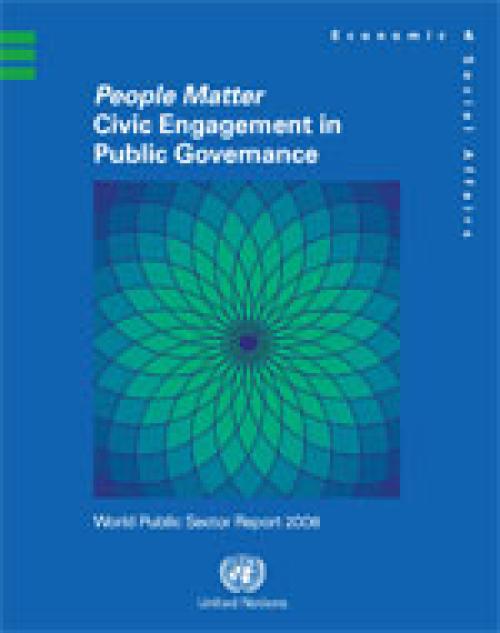
People Matter: Civic Engagement in Public Governance
The 2008 World Public Sector Report, People Matter: Civic Engagement in Public Governance, highlights the importance of civic engagement in public governance and by profiling several case studies, demonstrates how such practices gain the capacity to strengthen governance, make it more transparent and accountable and most importantly, contribute to developmental outcomes that are more sustainable, equitable and just. The Report also highlights several challenges and cautions that adequate attention must be given to the issues of power relations, institutional capacities of the government as well as the civil society organizations…
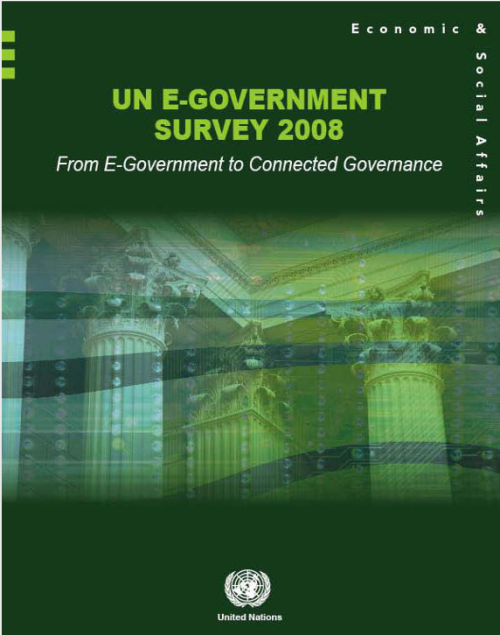
The UN E-Government Survey 2008: From E-Government to Connected Governance assesses the E-Government Development of the 192 Member States of the UN according to a quantitative composite index of e-readiness based on website assessment, telecommunication infrastructure, and human resource endowment. ICTs can help reinvent government in such a way that existing institutional arrangements can be restructured and new innovative arrangements can flourish, paving the way for a transformed government.
The focus of the report this year, in Part II, is e-government initiatives directed at improving operational efficiency through the integration of back-office functions. Whilst such…
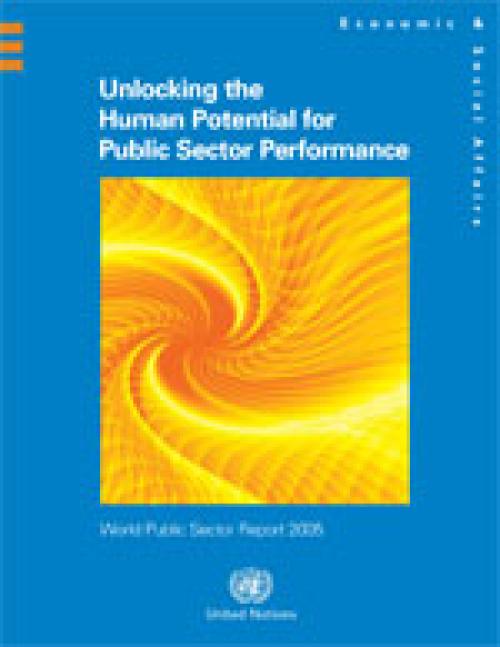
unlocking the Human Potential for Public Sector Performance
As recommended by the UN Committee of Experts on Public Administration (UNCEPA), the third World Public Sector Report will be published in 2005, with a particular thematic focus on human resources management (HRM). More specifically, the report will explore how the human potential can be unlocked to enhance public sector performance. UNCEPA, at its Second Meeting in April 2003, stressed that human resources capacity was critical to the quality of public administration. The increasing complexity of both policy-making and administrative processes, as well as the erosion of human resources capacity to carry out those…
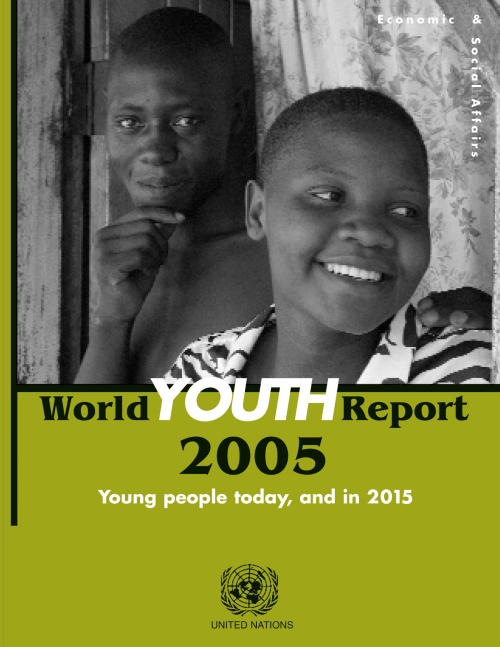
The year 2005 marks ten years since the General Assembly adopted the World Programme of Action for Youth in 1995. This report, an official report to the General Assembly, called for a renewed committment to the goals of the World Programme of Action, since over 200 million youth were living in poverty, 130 million youth were illiterate, 88 million were unemployed and 10 million young people were living with HIV/AIDS.
In the World Youth Report 2005, it is argued that too often, youth policy is driven by negative stereotypes of young people, including delinquency, drug abuse and violence. What seems to be forgotten is that young people are a positive force for development, peace,…
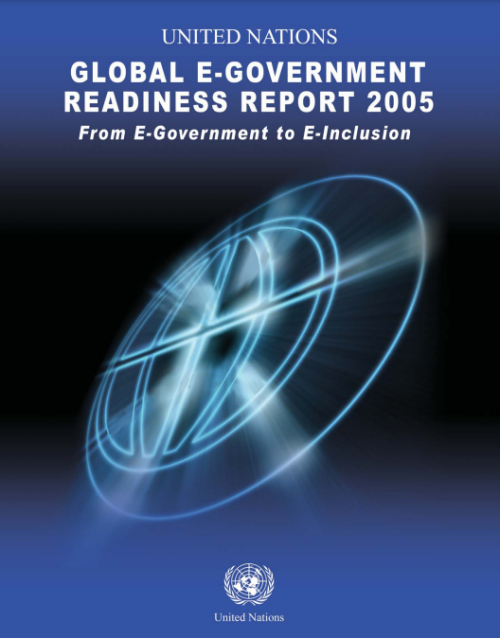
The spread of information technologies to a select group of people in the world is worsening disparities between the e-haves and the e-have-nots. There is a danger that unequal diffusion of technology, far from fomenting cohesion by providing opportunity, will result in reinforcing the traditional patterns of economic and social inequalities which will lead to a weakening of social bonds and cultural organization.
Exploring the interlinkages between e-government and human development, Part II of the UN Global E-Government Development Report 2005 points to the need to place development thinking within what it terms as the Socially Inclusive…
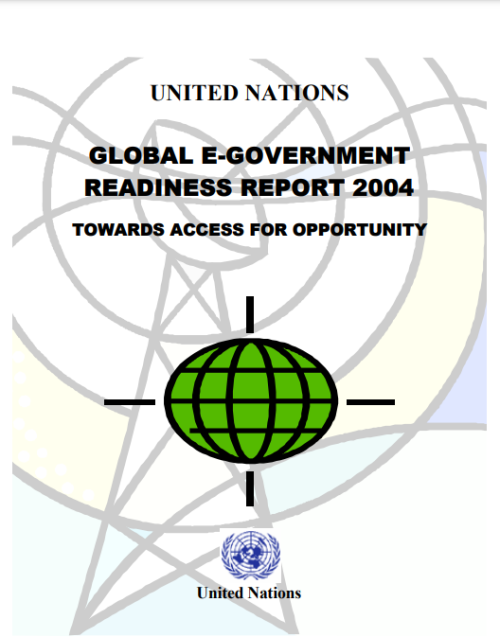
Economic and social empowerment today rests on the ability to access, gather, analyze and utilize information and knowledge to widen individual choices for political, economic, social, cultural and behavioral decisions. ICTs are the conduits which transmit information and knowledge. By integrating technology into development planning, more effective and speedy solutions can be found for economic growth and sustainable human development. However, the reality is that access to - and the distribution of - the tools for knowledge and wealth creation are highly unequal both among, and between, countries of the world. The disparities in access to ICT-related…
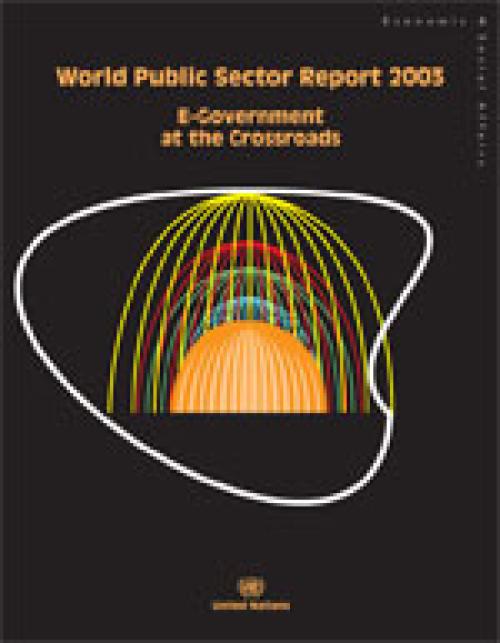
E-government at the Crossraods
The World Public Sector Report 2003 presents a view of e-government as a tool for creating public value. It puts e-government development in the context of the United Nations Millennium Declaration, the Report claims that meaningful e-government applications are those that support the environment conducive to human development and suggests that such an environment can be created by a conscious effort "world making". It discusses the special cases of e-participation and privacy, all as part of the main message the ICT by itself will not result in a different, better government, or higher quality of life, but that…
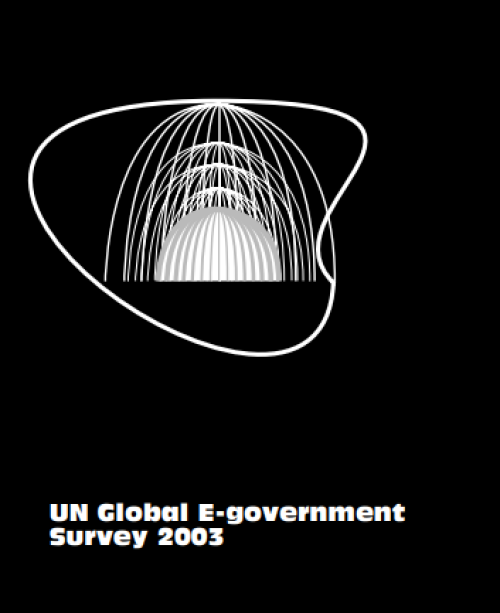
Governments are increasingly becoming aware of the importance of employing e government and e governance in improving public service delivery to people. The potential of e-government, as a tool for development, hinges upon three pre- requisites - a minimum threshold level of technological infrastructure, human capital, and e-connectivity for all. E-government Development strategies and programmes will be able to be effective and 'include all' people only if, at the very minimum, all have functional literacy and education, which includes knowledge of computer and Internet use; all are connected to a computer; and all have access to the Internet. The primary…
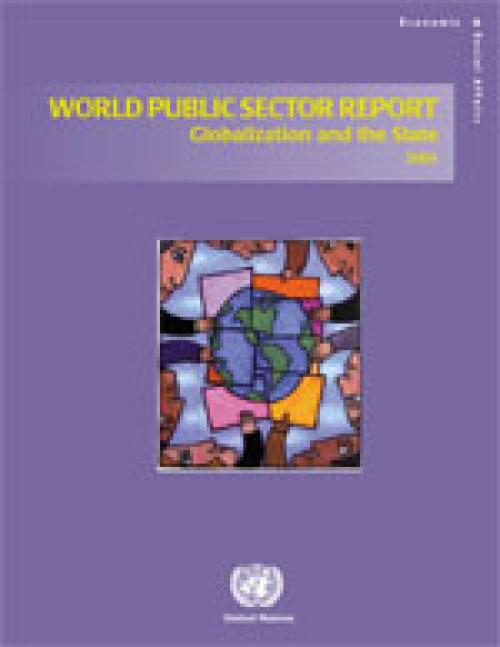
Globalization and the State 2001
Globalization, although not a new phenomenon, is unquestionably of paramount significance for all countries, developed or developing, rich or poor, large or small. What is globalization? How is globalization affecting the role and functions of the nation- State? Is globalization "good" or "bad"? Is there a universal understanding of its potential or its costs? Can all societies benefit from globalization? Are all States adequately prepared to enable their people to seize the opportunities of globalization while minimizing its negative effects? How should public administration systems be redesigned in view of the changes occurring at the global…
 Welcome to the United Nations
Welcome to the United Nations